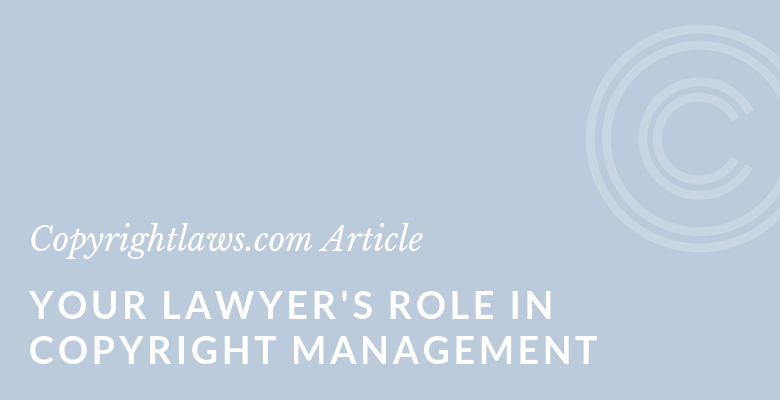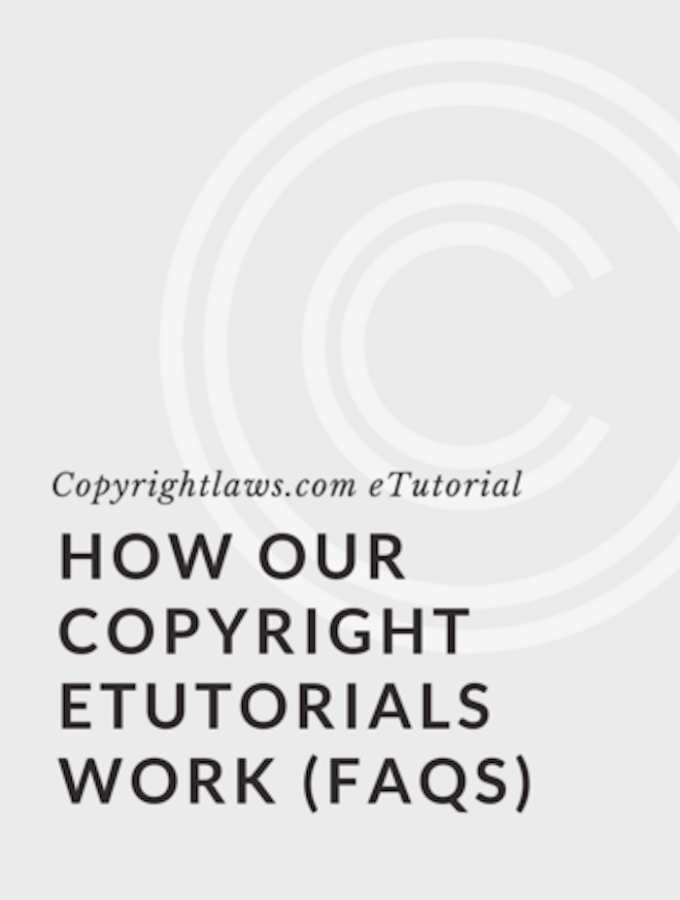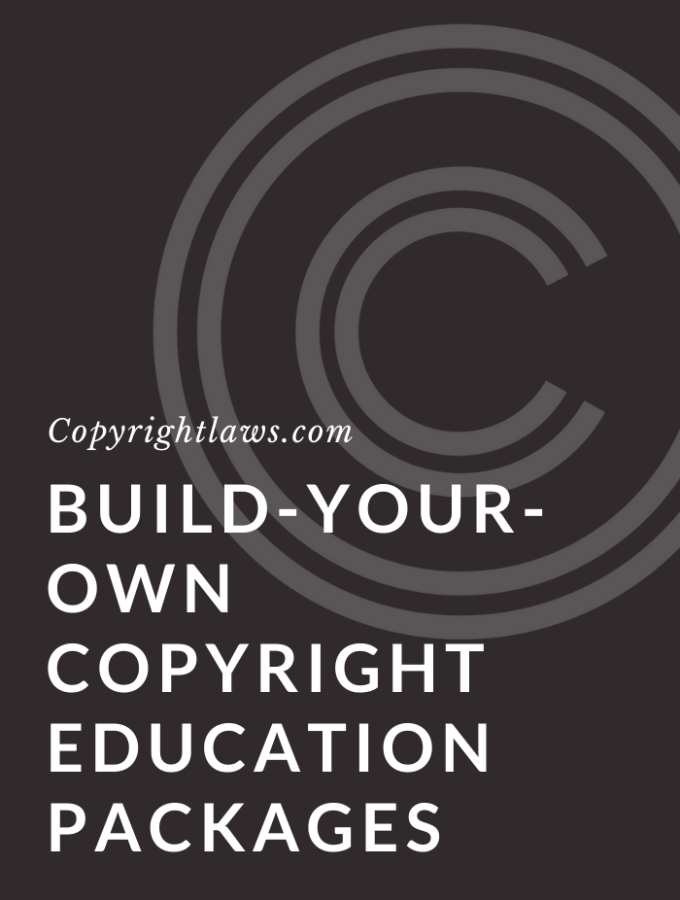
Your lawyer's role in managing copyright issues is key to your role in copyright management. Although most of your copyright and licensing issues are resolved without consulting in-house or outside counsel, it's important to know when to reach out to a copyright lawyer.
This article discusses both your and your lawyer's role in managing copyright and copyright compliance.
Copyright and Your Attorney
There are numerous measures your lawyer can be involved with in terms of managing your copyright issues and lowering your organization's risk of copyright infringement. Your lawyer may:
- Advise the organization, where appropriate, to purchase insurance that will pay costs such as “after-the-fact” licenses and monetary payments to a copyright owner in case of a copyright infringement suit against you.
- Educate employees about copyright protection and how it applies, how to analyze a fair use or fair dealing situation, licenses for software and other electronic resources, and the penalties for violating copyright. (This is a task you could jointly undertake with your lawyer to provide two perspectives on copyright and licensing infringement risks.)
- Review licenses you've negotiated to ensure the terms and conditions meet the organization's needs.
- Conduct periodic copyright compliance spot checks to ensure the organization is only using licensed content, or content in which it owns the copyright.
- Review a written copyright policy you're written.
Also see Best Practices to Lower Copyright Risks for tips on prevent copyright infringement in your organization.
Copyright Infringement Cases
Is infringing copyright becoming riskier? It's hard to say. Two court cases which remain in the minds of many corporate counsels in the U.S. concern Knowledge Networks and Legg Mason.
Knowledge Networks, a U.S. market research consulting company, paid $300,000 USD for distributing copyright-protected articles and research reports to employees via e-mail newsletters. The company had been forwarding articles from publishers such as Reed Elsevier and the Associated Press without obtaining licenses or permissions.
In Lowry's Reports v. Legg Mason, a jury awarded $19.7 million US in damages to Lowry's Reports, Inc. for copyright infringement by Legg Mason, Inc. In this case, Legg Mason had purchased one subscription of "Lowry's New York Stock Exchange Market Trend Analysis" newsletter. Legg Mason employees copied, faxed and disseminated copies of the newsletter, and later posted an electronic version of it on the company's intranet, over a period of several years.
Copyright Management Without Your Lawyer
There are several copyright issues that you may be comfortable dealing with on your own without your lawyer's assistance:
- Interpreting fair use or fair dealing on a daily basis.
- Determining what's in the public domain and what's protected by copyright.
- Selecting a Creative Commons license to use with content generated by your organization.
Note that in all of the above situations, you'll be able to deal with common issues. But, should the issues become complicated or pose larger risks to your organization, that's a good time to consult your lawyer.
Assessing Your Risk
An important job of any go-to copyright person is to assess the risk when using materials with and without permission (if you choose to proceed). To assess your risk, consider the following:
- The origin of the work(s) — Is the author well known? This may be riskier. Does the author or copyright holder have a reputation for strictly guarding uses of their works? Is the copyright owner likely to pursue legal action or to negotiate a copyright fee? Is the copyright owner likely to proceed through a trial if they commence an action?
- Who will have access to the work(s)? — If you're reproducing the work on the internet, it's accessible to a huge number of people around the world.
- Budget — Analyze your budget for after-the-fact royalty payments, settlements out of court, court-related fees, and infringement-related legal advice.
- Political consequences — What are the political consequences of using materials without permission? Would bad publicity mean less public funding? What would be the message to the public about respect for copyright law?
- Insurance — Do you have insurance coverage for copyright infringement? Would this use be covered? How would this affect your coverage and premiums?
- Emotional impact — What are the "emotional" costs of a claim against you for copyright infringement? How would this affect your employees and governing body?
- Inconvenience costs —Weigh the time and inconvenience of dealing with an infringement claim against the advantages of using unauthorized materials.
And of course, know your authority and comfort level to make these important decisions and judgment calls, and when you should consult with your lawyer.
Your Lawyer's Role in Managing Copyright
Your lawyer has a delicate role in copyright management. They need to find a balance between micromanaging copyright uses in your organization and avoiding copyright infringement. Take the time to discuss each of your roles and keep the conversation fluid and ongoing.
Work with your counsel to develop best practices to lower your copyright risks and take the time to understand what your is role vis-a-vis your lawyer's role when it comes to copyright management and compliance.
Our Copyright Certificate Programs provide you with in-depth knowledge of
the principles of domestic and global copyright law, as well as practical tools and strategies you can adapt to your particular circumstances.



